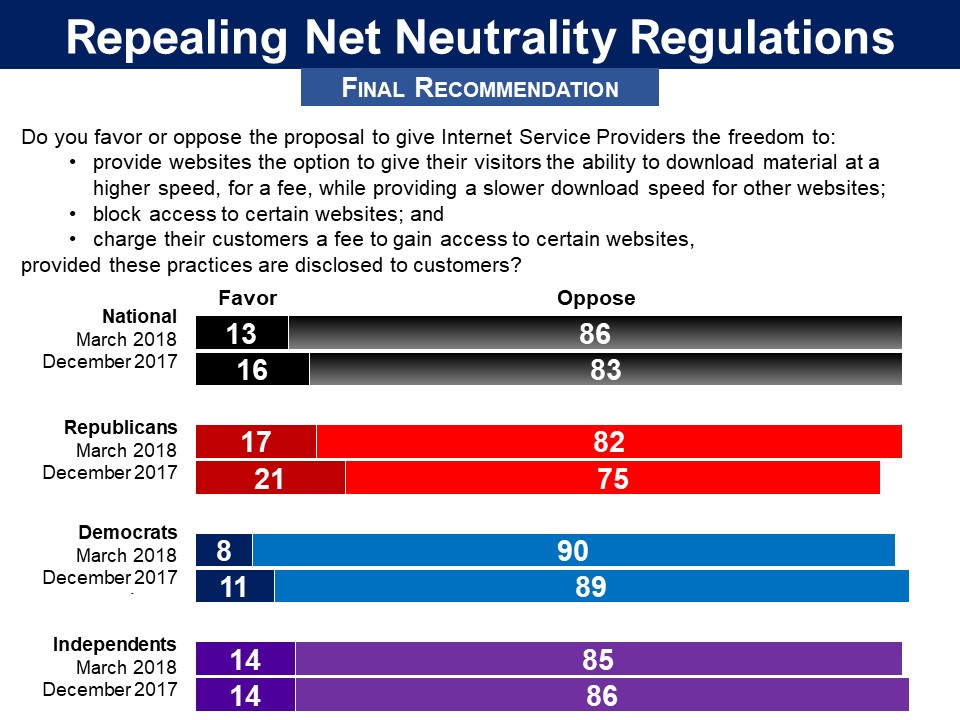
Net Neutrality
Since the internet became a widespread tool for citizens and businesses, there has been a concern over the possibility that Internet Service Providers (ISPs) might require users to pay a fee to gain access to all websites, and might require websites to pay a fee to have the fastest available download speeds. To address this concern, ‘net neutrality’ rules were established by the Obama Administration in 2014 that guaranteed all websites and users would be treated equally by ISPs.
In April 2017, under the Trump administration, the Federal Communication Commission (FCC) announced their intention to repeal these ‘net neutrality’ rules. On December 14th, 2017 the FCC voted to repeal the 2015 net neutrality rules. This repeal went into effect in June 2018.
Since then, legislation has been introduced by Democrats to reinstate net neutrality, and President Biden has nominated a chairperson to the FCC who has pledged to reinstate net neutrality, but they have yet to be nominated. Several states have also passed legislation to instate all or some of the net neutrality regulations.
National Sample: 2,702 Registered Voters
Margin of Error: +/- 1.9%
Fielded: January 27 - February 28, 2022
Questionnaire
Proposals covered:
- Reinstating the 2015 net neutrality regulations
National Sample: 1,077 Registered Voters
Margin of Error: +/- 3.0%
Fielded: December 6 - 8, 2017
Questionnaire
Proposals covered:
- Repealing the net neutrality regulations put in place in 2015
National Sample: 997 Registered Voters
Margin of Error: +/- 3.1%
Fielded: March 9 - 23, 2018
Questionnaire
Proposals covered:
-
- Repealing the net neutrality regulations put in place in 2015
|
NET NEUTRALITY |
|
Respondents were introduced to the debate over the net neutrality rules that were put in place under the Obama administration. Respondents informed that in 2015: The Federal Communications Commission (FCC) passed a set of regulations to prohibit those behaviors and ensure that all data moving through the internet is treated equally. These regulations prohibited ISPs from doing the following:
They were then told that, since its repeal, “ISPs have resumed some of the slowing and blocking activities that had been prohibited.” The proposal they were introduced to would reinstate the net neutrality regulations. They then evaluated arguments for and an argument against the proposal. The arguments in favor of reinstating net neutrality were found convincing by bipartisan majorities, whereas the arguments against were found convincing by at most half. Among Republicans, a greater percentage found convincing the arguments in favor than those against. Related Standard Polls
Status of Proposal There was legislation in the 116th Congress to permanently reinstate net neutrality: the Save the Internet Act (H.R. 1644, S. 682), sponsored by Rep. Michael Doyle (D) and Sen. Ed Markey (D). The bill passed the House, with 231 Democrats and 1 Republican voting in favor, and 190 Republicans voting against. It was not voted on in the Senate. In the 117th Congress, President Biden has nominated to chair the FCC an official who has pledged to reinstate net neutrality regulations. The nomination has yet to be finalized. |











